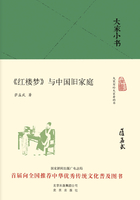Slapstick:Separation of Brother and Sister
Of all Vonnegut's novels, Slapstick(1976)is the loneliest。 The subtitle unequivocally pronounces its theme:“Lonesome No More”,indicating that the story to be told is about loneliness and the endeavor to fight loneliness。In terms of critical status, the novel itself suffers excruciating“loneliness”。It was widely denounced as an embarrassing failure。Critics attack its“emptiness”,“mannerism”,“perversion”,and“cynicism”。Even supportive scholars such as William R。Allan found it hard to back him up。For him,“it seems more likely that after a decade of tremendously innovative fction followed by the pressures of fame and personal troubles, Vonnegut had simply run out of the energy to fit his zanier ideas into a coherent whole”(1991:122)。The hurt Vonnegut felt from the critical rejection was so much that he said to an interviewer,“I never felt worse in my life。I felt as though I were sleeping standing up on a boxcar in Germany again”(CKV 184)。
Slapstick consists of three parts:the Prologue, the inset story, and the Epilogue。 The inset story tells of the bizarre experiences of a twin brother and sister, Wilbur Rockefeller Swain and Eliza Mellon Swain。The twins were born deformed。They have six fngers on each hand, six toes on each foot, two supernumerary nipples, and the appearance of“neanderthaloids”features—“massive brow-ridges, sloping foreheads, and steamshovel jaws”(SS 28)。Feeling ashamed of their monstrous appearance and being assured that“they were no more true relatives of theirs[……]than baby crocodiles”,the“fabulously well-to-do”parents send them away and“entomb”them in a“spooky old mansion[……]in the midst of two hundred acres of apple trees on a mountaintop”in Vermont(SS 29-30)。There for fifteen years Wilbur and Eliza live an Edenic life, attended to by numerous servants and a family doctor, all of whom believe they are sheer drooling idiots。They behave accordingly, although in truth they have developed into a sort of composite genius。Eliza is inductive in her thinking, while Wilbur is analytic;together they learn reading and writing, fnishing all the books in the family library by seven, and formulate all sorts of theories about gravity, the theory of evolution, and the necessity for creating artificial extended families。Secluded from the outside world, the twins live an innocent, blissful existence as a“nation of two”,like Adam and Eve in their Garden of Eden。
But the state of happiness and harmony is put to an end when their parents pay them the annual visit on their ffteenth birthday。 Overhearing how disgusted and hateful their parents are for their idiocy, the twins decide to please them by revealing their intelligence。However, the result only appalls them more, as“intelligence and sensitivity in monstrous bodies like Eliza's and mine merely made us more repulsive”(SS 75)。On the advice of an evil child psychologist, the twins are separated。Wilbur is sent to school and eventually becomes a pediatrician, whereas Eliza is put in an institution for the feeble minded。When the story starts, told in the voice of Wilbur in the form of an autobiography, Wilbur is waiting for his one-hundredth birthday。He is now the President of the United States, living in the ruins of Manhattan, where almost everyone has been killed by a mysterious disease called“The Green Death”。Accompanying him is his sixteen-year-old illiterate granddaughter, Melody(SS 19)。His twin sister, Eliza, has long been dead, killed in an avalanche in the Chinese colony on Mars(SS 152)。
The inset story of Slapstick does not actually portray a pet-master relation, at least not a prominent one, given the fact that Wilbur does have a horse named Budweizer,“the only person I could share my innermost thoughts with”(SS 161)。 Nevertheless, the author's account of his intimacy with the dog figures prominently in the Prologue。Although many critics regard the book a total failure, almost all agree that the nineteen-page Prologue is well written and worthy of close appreciation。William R。Allan, for example, praises that“the prologue is the most successful, especially for what it reveals about the autobiographical sources of Vonnegut's artistry”(1991:114)。Kilinkowitz also considers the Prologue to be“one of[Vonnegut's]best-written and most important essays”(1998:119)。Therefore, what is described in the Prologue is of crucial importance not only to the entire novel, but also to the understanding of the cosmos of Vonnegut's philosophy。
The Prologue is a quiet, melancholic reminiscence of the author's family past, its grandeur and prosperity before World WarⅠand its dispersal and decline caused by the“sudden hatred for all things German”during WWⅠand the economic slump of the Great Depression(SS 6)。The chief sorrow dealt with is the death of his beloved sister, Alice, who died of cancer at the age of forty-one,“among strangers in New Jersey”(SS 11)。Only“two mornings before”,her healthy husband, James Carmalt Adams, was killed in a train crash,“the only train in American railroading history to hurl itself off an open drawbridge”(SS 12)。Alice’s death was a great shock to Vonnegut and dramatically changed his life。It“probably impressed me more than anything else”,Vonnegut told an interviewer(CKV 205)。The pain is transformed and put at the core of the inset story of Slapstick, so that“the one that matters to[Wilbur]most is the death of his twin sister(CKV 205)。
But before everything else, Vonnegut describes his love for his dogs:
When a child, and not watching comedians on flm or listening to comedians on the radio, I used to spend a lot of time rolling around on rugs with uncritically affectionate dogs we had。
And I still do a lot of that。 The dogs become tired and confused and embarrassed long before I do。I could go on forever。(SS 2-3)
After a short break, he refers back to it:
One time, on his twenty-frst birthday, one of my three adopted sons, who was to leave for the Peace Corps in the Amazon Rain Forest, said to me,“You know—you've never hugged me。”
So I hugged him。 We hugged each other。It was very nice。It was like rolling around on a rug with a Great Dane we used to have。(SS 3,emphasis added)
Thirteen pages later, he returns to the detail again:
The two dogs have died of old age。 I used to roll around with them on rugs for hours on end, until they were all pooped out。(SS 15,emphasis added)
There are some other quick references, too, in places that the reference seems redundant and out of place。 Altogether, in the 19-page Prologue, the dogs are referred to seven times。It is so conspicuous that we cannot help but wonder whether Vonnegut is nudging us and calling our attention to them, and if yes, what is the significance?Unfortunately, rarely any Vonnegut scholar has ever noticed these dogs。
The dogs are from Alice's household。 After the deaths of both their parents within forty-eight hours, the three oldest boys of the Adams, aging from eight to fourteen, made two requirements for whoever would adopt them,“that they remain together and that they keep their two dogs”(SS13)。As it turned out, Kurt Vonnegut embraced the boys and the dogs into his Cape Cod household。
For the boys, the dogs are the remaining of their family。 Staying together and staying with the dogs is all they can do to keep the family intact, to support each other and gather enough courage to face the parentless future and fend off the fear for the unknown。For Vonnegut, the dogs may bring back memories of his sister, whom he loved so dearly and who“was always the person I had always written for”。“Any creation which has any wholeness and harmoniousness,”Vonnegut maintains,“was made by an artist or inventor with an audience of one in mind”。For him, that audience was his sister。She was his“secret of artistic unity and technique”(SS 15)。Rolling around with the dogs on the rugs might well be his desperate search for the lost unity and wholeness。
While this may sound far-fetched, sentimental, and hypothetical, the understanding that dogs provide emotional consolation and healing distraction in times of crisis is no exaggeration, as we have explained in the case of Dwayne in Breakfast of Champions。 Rhetorically and thematically, the roles of the dogs are not to be ignored either。As Peter Freese points out, the Prologue offers not only an“unabashedly frank explanation”of the novel's origins in its creator's personal experiences, but also“a kind of‘instruction for use'meant to ensure an adequate reader reception”(2009:418)。The deions in the Prologue can be instructive as to the understanding of the true nature of the inset story。In other words, what is depicted in the Prologue can be indicative and symbolic to the plot and themes of the inset story。Although Vonnegut declares at the opening that“[t]his is the closest I will ever come to writing an autobiography”(SS 1),the story is not a“one-to-one transposition of real events into a roman a clef”(Freese 2009:419)。Instead, it is“a complex narrative refraction of personal experiences into highly imaginative projections”(Freese 2009:419)。After all, Vonnegut has emphatically said in the Prologue,“It is aboutwhat life feels like to me”(SS 1)。
This is exactly where and how the dog scenarios work。 What the experience with the dogs signifies is, most of all, the“feel”。In the deions quoted above, three common features stand out:frst, that the dogs are uncritically affectionate;second, that the hugging and rolling with the dogs makes him feel good;third, that the man seems more dependent on the dogs than the dogs on the man。
All of this bears out in the story of Wilbur and Eliza。 While playing with the dogs, their“uncritical affection”places no pressure on Vonnegut, demanding no return of affection and exerting no prerequisite condition for its offer。It is spontaneous, unpretentious, and unjudgmental。Before Vonnegut starts to talk about his love for the dogs, he is proposing“common decency”over“love”,for love may involve much pain in the expectation and denial, demanding too much for return, and could be“poisonous”(SS 2,3),or it may simply become false protestations。As Eliza says,“It's as though you were pointing a gun at my head”when one says“I love you”。“It's just a way of getting somebody to say something they probably don't mean”(SS 108)。Love, as Freese observes, may be misused as a weapon for enforcing a desired result and may lead to possessiveness, intolerance, and jealousy(2009:443)。
The life of Wilbur and Eliza is replete with false claims of love。 First it is from their parents。When they visit the twins on their birthdays, they would show them that they love them and care about them, but in privacy they wish“we would hurry up and die”(SS 60)。False claim of love comes later between Wilbur and Eliza。When the twins are forced apart, they are turned into hateful enemies, with Wilbur becoming the parents'favored baby,“the child with a future”(SS 110),and Eliza a shameful burden,“a cancer to be removed”(SS 122)。Yet still, when Eliza gets out of the hospital with the help of a bounty-hunter lawyer and launches a lawsuit against her millionaire relatives, all Wilbur and Mother have to show tothe reporters is a telegram they sent to Eliza:“WE LOVE YOU。YOUR MOTHER AND YOUR BROTHER”,to which Eliza ironical replies:“I LOVE YOU TOO。ELIZA”(SS 115)。
The hypocritical and unreliable nature of love is laid bare。Even after their reconciliation love proves inadequate。When on the graduation night, deeply moved by his sister's angelic blessings from a helicopter, Wilbur shouts,“Eliza!I love you!”“I really love you!”“I mean it!”he finds the word“love”so pale and powerless that he has to resort to various emphatic mechanics to make it convey what he feels(SS 139)。The careless abuse of the word has tragically diluted its power of expression and the sincerity and intensity it originally possesses。As a compromise, Vonnegut proposes in the Prologue:“I wish that people who are conventionally supposed to love each other would say to each other, when they fght,‘Please—a little less love, and a little more common decency”(SS 3)。Although it sounds less elevated and romantic, common decency can be more effective and benefcent to create“the ****** experience of companionship”(SS 177)。
What Vonnegut means when he insists on preference of common decency over love, I think, is not a total negation of love, but an expression of disillusionment with the failure of love and a resigned plea for people to meet the basic quality of being humane。 The graduation present Dr。Mott gives Wilbur reads,“If you can do no good, at least do no harm”(SS 140)。The advice reaffrms Vonnegut's notion of common decency:If you cannot live up to the standards of love, at least be humane。Treat people around you with respect and consideration。Don't hurt。If you cannot love them, be kind。As a matter of fact, this is a theme that Vonnegut reiterates time and again in his fctions as well as essays。In Jailbird, he has his leading character say,“Love may fail, but courtesy will prevail”。In God Bless You, Mr。Rosewater, the titular hero baptizes Mary Moody's twins with the words:“Hello, babies。Welcome to the Earth[……]There's only one rule that I know of, Babies—:‘God damn it, you've got to be kind。’”
In Slapstick, Vonnegut puts the twins'millionaire young parents under test by giving them a pair of ugly, grotesque children。 It turns out that what they do to Wilbur and Eliza is even below common decency, let alone parental love—they“entomb”them in an old, isolated, gothic mansion, shut them up entirely from society by barbed wires, have other people take up the responsibility of looking after them, pay them condescending visits once a year, and when they discover them to possess unusual intelligence being together, cruelly separate them。The only thing they ever do for the children is material comfort, which calls for money, not love。In effect, their behavior to the twins is no better than the treatment of caged animals。There is indeed one detail that illuminates the similarity:the servants hope“with all their hearts”that the twins become“toilet-trained”,just like caged birds or pets(SS 41,50)。In her emotional breakdown on their fifteenth birthday, the mother confesses that the children are no human to her。She says to her husband,“I would give anything, Caleb, for the faintest sign of intelligence, the merest ficker of humanness in the eyes of either twin”(SS 69,emphasis added)。In the eye of the parents, the twins are only subhuman, thus deserve no true love or moral obligation。
Significantly, when Wilbur is elected the President of America, he carries out the Utopian schedule of artificial extended families he and Eliza formulated in their composite genius。 His goal is to give relatives to everyone, including those most undesired and downtrodden, whom his young angered wife refers to as strangers“crawling out from damp rocks like earwigs, centipedes, slugs and worms”(SS 175)。He believes the“****** experience of companionship is going to allow them to climb the evolutionary ladder”and“become human beings”(SS 177)。Common decency, then, is love not limited to one's own kind and kin, but that which embraces all living creatures。
In regard to the second feature of the dog scenarios, we should takenotice of Vonnegut's nearly word-to-word repetition of his“rolling around on rugs with the dogs”。 What is emphasized in this willful repetition is physical intimacy。In other words, what makes rolling around with the dogs feel so good is the physical contact。It explains why, after hugging his adopted son upon request, he says,“It was very nice。It was like rolling around with the Great Dane we used to have”(SS 3)。The importance of hug is stressed again in his account of his life-long“common decency”with his brother Bernard。Without much logic following, Vonnegut puts in,“We have hugged each other maybe three or four times—on birthdays, very likely, and clumsily。We have never hugged in moments of grief”(SS 4)。A slight regret that they had not hugged more is not hard to discern。
A lot of studies have shown that physical contact, or touch, is crucial to the well-being of human beings, both physically and emotionally。 People have a biological need for touch。It is the most primitive but very basic, effective nonverbal means of communication。Suzanne M。Peloquin makes a good summary of the benefts of touch:“Touch fulfll several functions of the self。Through touch one communicates, tests the reality of the world, affrms connectedness and comfort with others, and manifests the self as a person”(303)。But in modern cultures, bodily contact is regarded as taboo。Yi-fu Tuan has rightly noted that the popularity of pets in the Western world since the 1960s was partly due to the increasing lack of outlet for people's gestures of affection in a society that“discourage[s]casual physical contact, and frown[s]upon the enormously satisfying stances of patronage, such as laying one's hand on another's shoulder”(112)。Such is the world of Vonnegut, and so is that of Wilbur and Eliza。
Physical intimacy is a key motif in Slapstick。 As dizygotic twins, Wilbur and Eliza are like two halves of the same mind。Their happiness and intelligence lie entirely in their physical togetherness。Once they put their heads together, literally, they“give birth to a single genius”:they can read and write English by four, French, German, Italian, Latin andancient Greek by seven,“and do calculus, too”。By the time they are ten, they have secretly read the thousands of books in the mansion(SS 41-42)。However, once they are separated, they become dumb and dull“Betty and Bobby Brown”(SS 88)。The concept of Wilbur and Eliza as a composite genius is highly symbolic and can be interpreted in different ways。Allan sees it as reminiscent of“such ancient myths as Plato's notion that the ***es were originally joined before being split by vindictive gods”(1991:117)。Loree Rockstraw comments that“Vonnegut turns the metaphor of Eliza and Wilbur's creative interplay into an ******uous orgy to reflect the writer's frustrations and painfully won craft”(129)。Broer argues that the twins are not only“a typical device for dramatizing a single mind on the verge of schizophrenia”,but that Vonnegut also“uses the symbolic fusion of male and female sensibilities to portray the painful alienation of an entire society”(112)。While all of these arguments make good sense in their respective perspectives, the critics have all ignored the very basic and literal meaning of the twins'condition—their physical intimacy。
Like his imposing repetition of the dog scenarios, Vonnegut makes conspicuous repetition about the twins'desire for physical contact。 The frst detailed deion is made when the twins are given intelligence tests by a malicious psychologist, Dr。Cordelia Swain Cordiner, who detects their mutual dependence and demands that they be tested separately, which proves their intelligence to be“low normal for their age”(SS 95)。Upon the Mother's insistence, they are tested again and“as a pair”。The twins are overjoyed。In order to show how brilliant they are, they do their best to unite themselves to work out perfect answers:
The only trouble was that the two of us, in the innocent process of checking and rechecking our answers, wound up under the table—with our legs wrapped around each other's necks in scissors grips, and snorting and snuffing into each other's crotches。
When we regained our chairs, Dr。 Cordilia Swain Cordiner had fainted, and our parents were gone。(SS 103-4)
The second time they display such intimacy is when, after years of separation, Eliza fnally makes it to the mansion where Wilbur and Mother live。 After some violent exchange of animosities, the sister and brother calm down, but still sarcastic。Then Eliza says, without any context,“Touch me。”
“Pardon me?”I said。
“I'm your own fesh。 I'm your sister。Touch me,”she said。
“Yes, of course,”I said。 But my arms seemed queerly paralyzed。
“Take your time,”she said。
“Well—”I said,“since you hate me so—”
“I hate Bobby Brown,”she said。
“Since you hate Bobby Brown—”I said。
“And Betty Brown,”she said。
“That was so long ago,”I said。
“Touch me,”she said。
[……]
Then she touched me。
We became a single genius again。(SS 126-7)
This time the orgy goes on for five days and nights, during which they somehow write a manual for childbearing。 In a likewise manner, the deion of their last“meeting”is also very sensuous and emphasizes the desire for physical closeness。But this time it is Wilbur who is the focal point of deion。Eliza has already died years ago, but an odd-looking electric device called the Hooligan turns up to be able to serve as something like a telephone between the dead and the living。Wilbur goes wild in his endeavor to talk to her through the device。
He climbed involuntarily on top of the cabinet, as tall and old as he was。 He crouched over the pipe, to be that much closer to his sister。He hung his head upside-down in front of the business end of the pipe, and knocked the crucial lunchpail to the foor, breaking the connection。(SS 232)
Later, the son of the woman who owns the device tells him what he looks like talking to the Hooligan:“Like the biggest baboon in the world-trying to fuck a football”(SS 236)。
Most critics discuss the twins'relationship in terms of ******。 Although Vonnegut does make a point in the Prologue that ****** is part of the book(SS 18),I think he also warns against taking the ******uous relationship too literally。In Chapter 6,Wilbur makes a clarifcation:
Although we pawed and embraced each other a great deal, our intentions were purely intellectual。 True—Eliza matured sexually at the age of seven。I, however, would not enter puberty until my last year in Harvard Medical School, at the age of twenty-three。Eliza and I used bodily contact only in order to increase the intimacy of our brains。(SS 50)
What their physical desire for each other symbolizes, I think, is the intensity of loneliness and alienation, the agony at not being able to be together, to be connected, to be whole。 In the dialogue of the second meeting, we can fully feel the strain and inhibition both of them struggle with and the desperation in which they are hankering for reunion。In this sense, I agree with Broer that“Vonnegut uses the symbolic fusion of male and female sensibilities to portray the painful alienation of an entire society”(112)。In a highly imaginative manner, the forced separation of the twins and their craving for closeness literalize the anxiety, insecurity, and incompleteness that mark the postmodern existence。The apparent absurdityand ludicrousness of the monstrous twins only enhances the serious emphasis of the pathos of the human dilemma addressed in the novel(Reed 1996:113)。
In the deion of his interaction with the dogs, Vonnegut foregrounds the dogs'utter innocence:“The dogs become tired and confused and embarrassed long before I do”(SS 2-3)。 This is a characteristic rhetoric of Vonnegut's animal poetics and examples can be found in almost all of his fctions。Always after some destructive event, a bird or a dog will be depicted as being entirely unwitting of what has happened。On the one hand, this shows Vonnegut's refusal to anthropomorphise the animal, a conventional practice of attributing human qualities to animals and having them think and talk human-like。In Vonnegut's fctions, animals are always treated as real and autonomous individuals。This will be further dealt with in Chapter Four。On the other hand, their innocence sets off by contrast the cruelty and stupidity of humanity, which Vonnegut aims to attack。
Here in Slapstick, the fact that the dogs become tired and confused and embarrassed long before the author shows poignantly the author's utter loneliness and the emotional need for warmth。 Unlike the classic man-dog story of Robinson Crusoe in which the man is the master and the dog a subaltern companion,in Vonnegut's story, the man is the lonely one and more dependent whereas the dog is the giver and sympathizer。In this reversed relation, there is more agony than irony。In the Prologue, Vonnegut compares himself to a turtle:“Perhaps I am the turtle, able to live simply anywhere, even underwater for short periods, with my home on my back”(SS 10)。This is a very sad metaphor, denoting rootlessness and a sense of diaspora that he feels as a third-generation German-American, cut off completely from their German roots。The resentment and shame are discernible as he repeatedly recalls in essays and interviews how his parents, amidst the strong anti-German sentiment, chose not to teach them anything about their German heritage。“My brother and sister and I were raised as though Germany was as foreign to us as Paraguay”(SS 6)。
The loneliness and rootlessness, however, is not meant to be limited to his personal experience。 It is the epitome of the common condition of America。In his Presidential campaign address, Wilbur speaks of“American loneliness”。“All the damaging excesses of Americans in the past,”he says,“were motivated by loneliness rather than a fondness for sin”(SS 160)。The slogan for his campaign is“Lonesome No More!”—the subtitle of the book, and the exact slogan Vonnegut recommended for Sargent Shriver when the latter was running for Vice-president(CKV 224)。The solution he has for the American people to combat loneliness is artifcial extended families。
Vonnegut must have felt extremely elevated when finally he had a chance to put into application, although only in the world of fiction, the pet theory he had conjured up since the years at University of Chicago as a student of cultural anthropology。 He first became acquainted with the concept from Dr。Robert Redfeld, whose theory of“the folk society”charmed Vonnegut and enlightened him。On basis of Dr。Redfeld's idea that a folk society is a stable, isolated, primitive community within which“people can take really good care of one another, can share fairly, and can distribute honors to one and all”(PS 211),he formulated his“utopian scheme”of artifcial extended families and began propagating it at every chance。Meanwhile, a visit to Biafra much confirmed his belief in the benefits of extended families。In that small country, Vonnegut observes, people are“able to endure so much so long without bitterness”because they have“the emotional and spiritual strength that an enormous family can give”(WFG 147)。Why can't this be applied as a remedy for the rampant evil in contemporary America?He must be wondering。
In Slapstick, Wilbur as the President helps his creator realize his“sunny little dream”(CKV 80)。 Each citizen is assigned by the government a middle name which links him to ten thousand strangers as brothers and sisters, and one hundred and ninety thousand as cousins, so that everybody has a large family of relatives。The computer-bestowed middle names“consist of a noun, the name of a fower or fruit or nut or vegetable or legume, or bird or a reptile or a fsh or a gem or a mineral[……]connected by a hyphen to a number between one and twenty”(SS 162)。Wilbur's middle name, for example, is Daffodil-Ⅱ;that of his young wife,“peanut-3”。
While the whole thing looks hilarious and farcical, pointing right to the title of the book,“slapstick”,the core concept of the family plan remains serious and is affrmed。 As Reed observes,“Vonnegut obviously sees the potential drawbacks to the scheme, and may not seriously give the idea more than a Kilgore Trout rating, but he seems serious enough about the human needs that extended families might alleviate which are at present being neglected”(1996:115)。Besides the earlier quoted egalitarian ideal of everybody becoming equal and is to be treated with equal respect and consideration as human beings, regardless of their origin and background, the story of how Wilbur's granddaughter Melody makes her way from Michigan to New York is meant, as a conclusion, to demonstrates the value of family。Melody, young and ****d and pregnant, treks alone eastward in search of her legendary grandfather,“the King of New York”。She would not have been able to make it if there had not been the help of her artifcial relatives。And there is a listing of all those who help her and how:
She would encounter relatives everywhere—if not Orioles[her computer-bestowed middle name],then at least birds or living thingsof some kind。
They would feed her and point the way。
One would give her a raincoat。 Another would give her a sweater and a magnetic compass。Another would give her an alarm clock。
Another would give her a needle and thread, and a gold thimble, too。
Another would row her across the Harlem River to the Island of Death[Manhattan],at the risk of his own life。(SS 243)
What is at work is human fellowship, the spontaneity of offering help at the sight of the needy。 Small as their help is, the people exhibit their“common decency”that means life to Melody。Here the notion of extended family has actually transcended all barriers of family names or middle names and is extended to the whole human race。The phrase“birds and living things”even indicates the extension of fellowship to all living creatures。
Reed feels baffled by the phrase, uncertain about the connotation of the phrase。“The phrase‘birds and living things'remains ambiguous, referring doubtless to other artifcial families with bird or beast names but almost as certainly to all living things as relative,”he observes, but then, as if ashamed of such a“far-fetched”interpretation, he corrects himself,“Certainly the notion of a human family is underlined in the recitation of the aids and comforts rendered to Melody as she treks eastward”(1996:116)。 As a matter of fact, if we take into consideration the contents of Dr。Redfeld's theory of the folk society in which there is a special emphasis that in the folk society“much besides human beings is treated personally”,we will not feel surprised that Vonnegut should want to include“birds and living things”into the extended family scheme。In his address to the National Institute of Arts and Letters,1971,Vonnegut quotes at length from Dr。Redfeld's theory of the Folk Society:
Thus nature, too, is treated personally;the elements, and the features of the landscape, the animals, and especially anything in the environment which by its appearance or behavior suggests the attributes of mankind—to all these are attributed qualities of the human person(WFG 178)。
Along with Vonnegut's fascination with the animal world since young, this belief that all elements in nature, human or nonhuman, belong to the folk society and are to be treated with respect makes Vonnegut's ideal extended families all-embracing and boundless。 Eventually, birds and living things will not only be the middle names for people, but real, living companions of humans in life。














